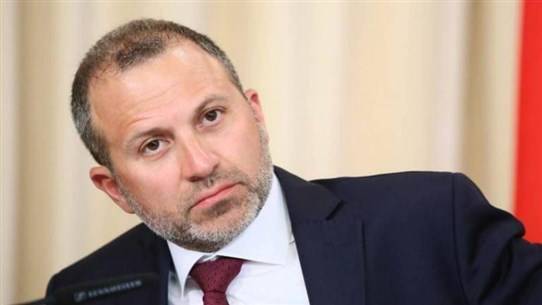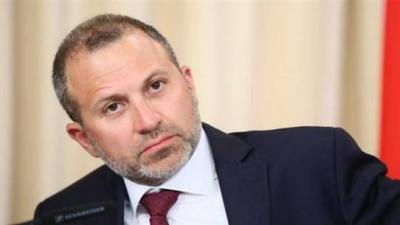No one doubts the relationship between Hezbollah and the Free Patriotic Movement (FPM). However, as in every political event, they face challenges in defining their roadmap. Today, government and presidential clouds loom over them. It is difficult for the FPM to quickly overcome the ramifications of President Michel Aoun's term ending. The significance of this event and its repercussions on the internal community are substantial enough that the FPM is still trying to navigate how to deal with it.
The transition from a first-class position to a second-class one, alongside other political groups, is challenging for the FPM. It is particularly difficult for them to witness the image of caretaker Prime Minister Najib Mikati in his external tours and meetings at various levels, especially since they opposed his appointment to form the government. From the very beginning, FPM leader Gibran Bassil stood against appointing Mikati as prime minister and tried to persuade Hezbollah of his opposition. However, the party chose to proceed with Mikati, influenced by President Nabih Berri. What unfolded afterward, in Bassil's view, legitimized his stance towards the designated prime minister, who does not wish to form a government before the end of the term.
While Hezbollah provided assurances regarding the limits of the Cabinet's work and the Parliament later offered an explanation defining the powers of a caretaker government, Bassil knows that constitutional interpretations have never resolved the political powers’ issues and their imposition of certain styles of political performance. Having experienced Mikati since their joint tenure in the one-color government, when he himself read the statement "dismissal" of Prime Minister Saad Hariri's government in 2011, Bassil is well-aware of the margins Mikati grants himself as the head of a government, albeit one with limited powers.
Mikati's recent meetings illustrate this margin, which may gradually expand if the presidential void prolongs and regional and international dialogues develop about Lebanon. This situation raises Bassil's "alarm" and reinforces his perspective in front of the party. In the first week of the void, Bassil attempts to maintain a revitalizing policy. However, in the long term, this could be exhausting for the FPM and its allies, as the ceiling of the relationship with Hezbollah is susceptible to change in both government and presidential realms. Hezbollah understands that Bassil, who repeatedly affirms the depth of their alliance, can also react in ways that do not benefit the alliance or even serve the party's interests in fundamental matters in the long run.
This applies not only to the presidential file, which both sides approach fundamentally differently concerning strategies and qualified candidates. Some political figures confidently assert that Bassil remains the party's sole candidate, contrary to all currently proposed names within the 8 March alliance. Nonetheless, Hezbollah has a political strategy that is entirely different from Bassil's roadmap. The latter faces internal challenges related to the FPM and Christian challenges regarding his position within the Christian equation, particularly as current circumstances are not conducive to gaining popular support.
His most significant challenges include maintaining his position as the natural presidential candidate, disregarding U.S. sanctions. All of this compels him to devise a roadmap that may not align with Hezbollah's interim vision. The issue of government is a fundamental element in the blockage faced by Bassil’s plan, which he believed he would realize after Aoun's term ended. It is not easy for him to confront the performance of the prime minister on various files, such as electricity, particularly when he is part of the government, risking the potential of becoming an opponent or an obstacle where he was expected to prepare for the presidential battle.
On the other hand, Hezbollah seeks to ease tensions on multiple fronts; it is neither inclined to confront the Speaker of Parliament over the nomination of Marada Movement leader Sleiman Franjieh, nor with Mikati, with whom it has not recorded any deep fundamental disagreement. In its pursuit of balance with Bassil, who now practically has no ally but Hezbollah, the party tries to absorb its ally's dissatisfaction, all while recognizing that Bassil can be obstinate and intense in his political battles, despite not differing radically in future vision.
However, this type of issue confuses Hezbollah, even though the FPM benefits in strengthening its position. Therefore, both parties need a point of convergence, which currently does not seem available in their approaches to the situation of the caretaker government and the presidency. Nevertheless, "necessity is the mother of invention," and since they need each other, as has been the case in several strategic or local milestones, they will eventually find a moment of shared interest to reconnect. Until then, Bassil may intensify his criticisms toward several allies.




